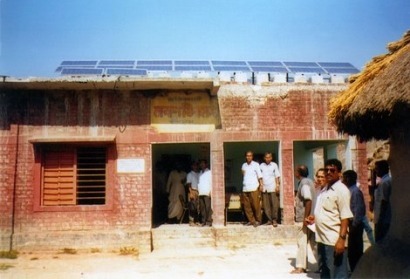
The Supreme Court found that the application process for the licences was illegal and unconstitutional due to ‘arbitrariness, lack of transparency’ and ‘lack of objectivity.’ The ruling cancels the licences of 214 coal blocks including Essar and Hindalco’s Mahan Coal block. This includes all licences allocated to companies between 1993 and 2010. Operational coal mines affected by the ruling must now be wound up within six months. The court also ordered steep penalties for offending companies amounting to £100 million and the cancelled licences must now be subjected to a fresh auctioning process.
“This is a wake-up call for the Modi government” said Vinuta Gopal, Climate and Energy campaigner of Greenpeace India. “They came to power on an anti-corruption and economic growth agenda, but coal is too mired in corruption to meet their goal of delivering access to electricity to all and economic growth across the country. Today’s landmark ruling is a strong message from the highest court in the country to the government and industry that the laws of the land cannot be circumvented and disregarded.”
While coal is set to become more expensive, wind and solar energy are dropping rapidly in price. The Indian government now has the choice of whether to develop a green economic model or continue promoting increasingly expensive dirty energy.
Greenpeace India believes that the ruling could mean the end of cheap coal in the country. Meanwhile, forest communities in Madhya Pradesh are also celebrating as the Mahan coal block, including a planned open cast mine that would have destroyed half a million trees, along with wildlife habitats and the livelihoods of local people, will not now go ahead.
For additional information:

